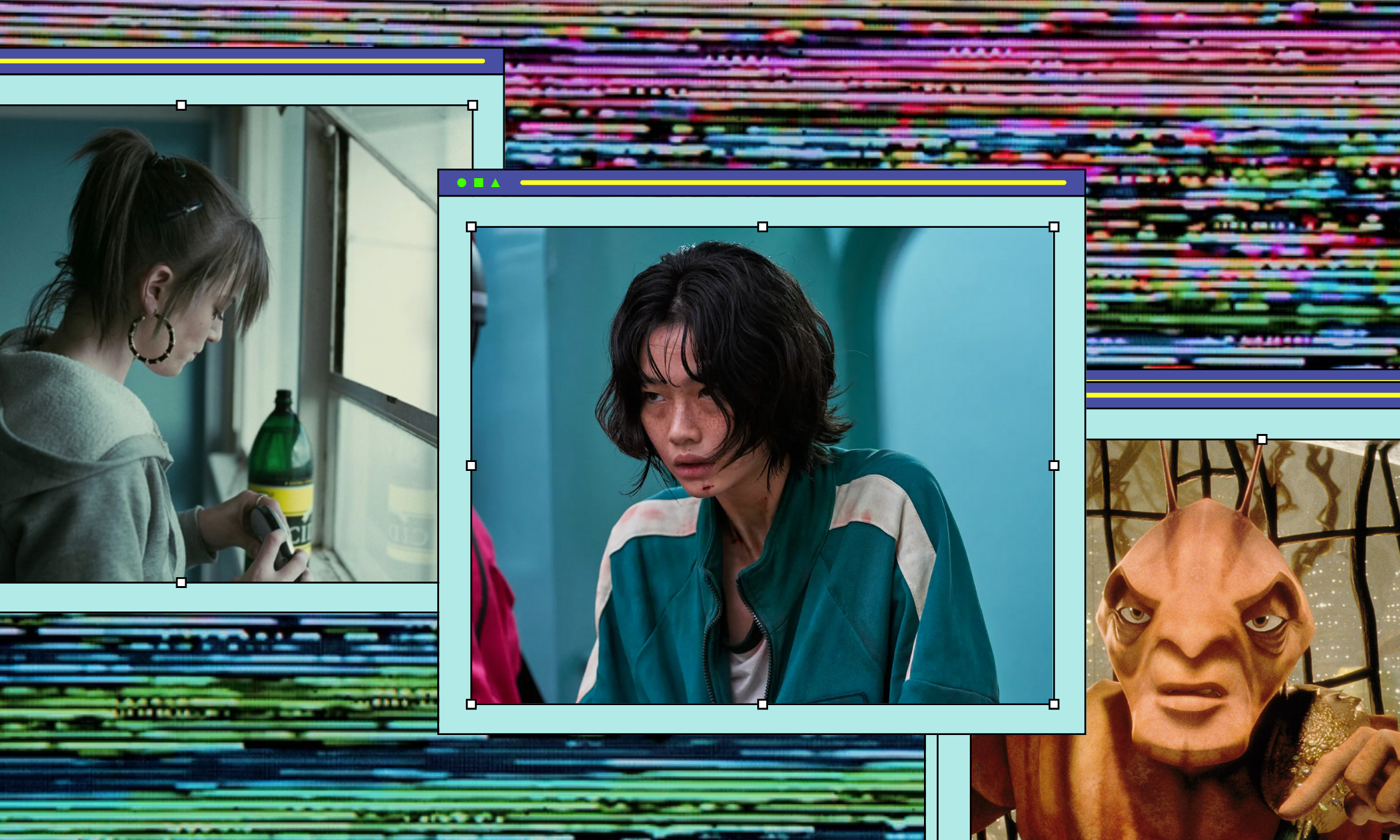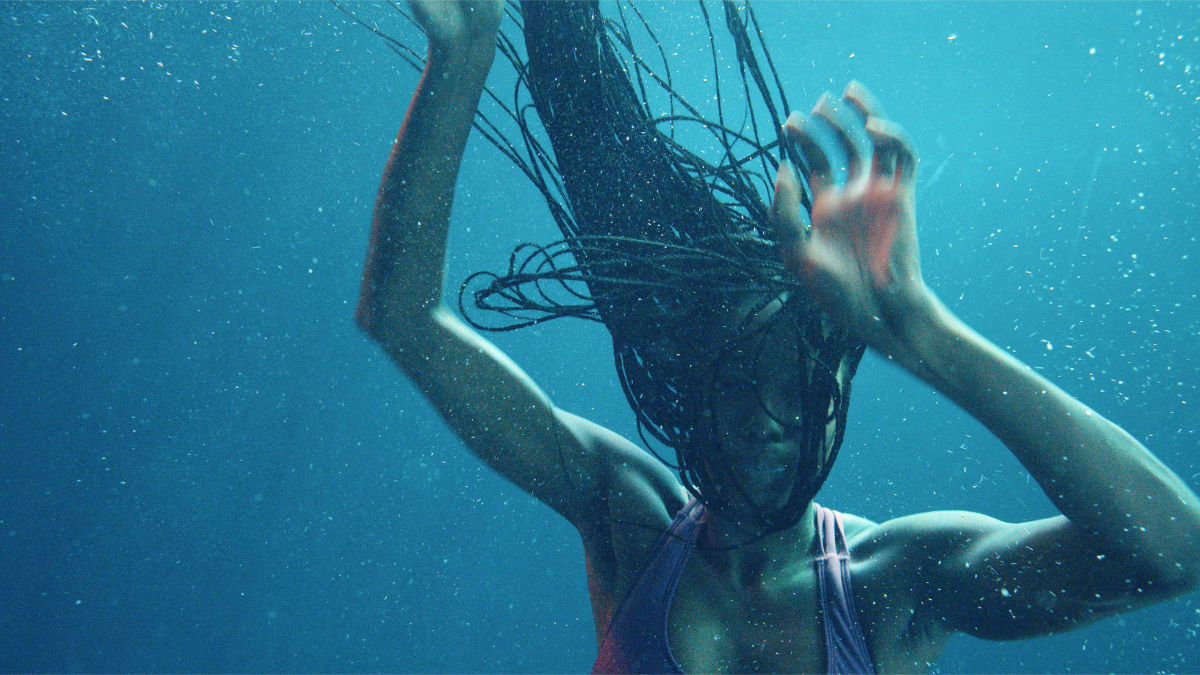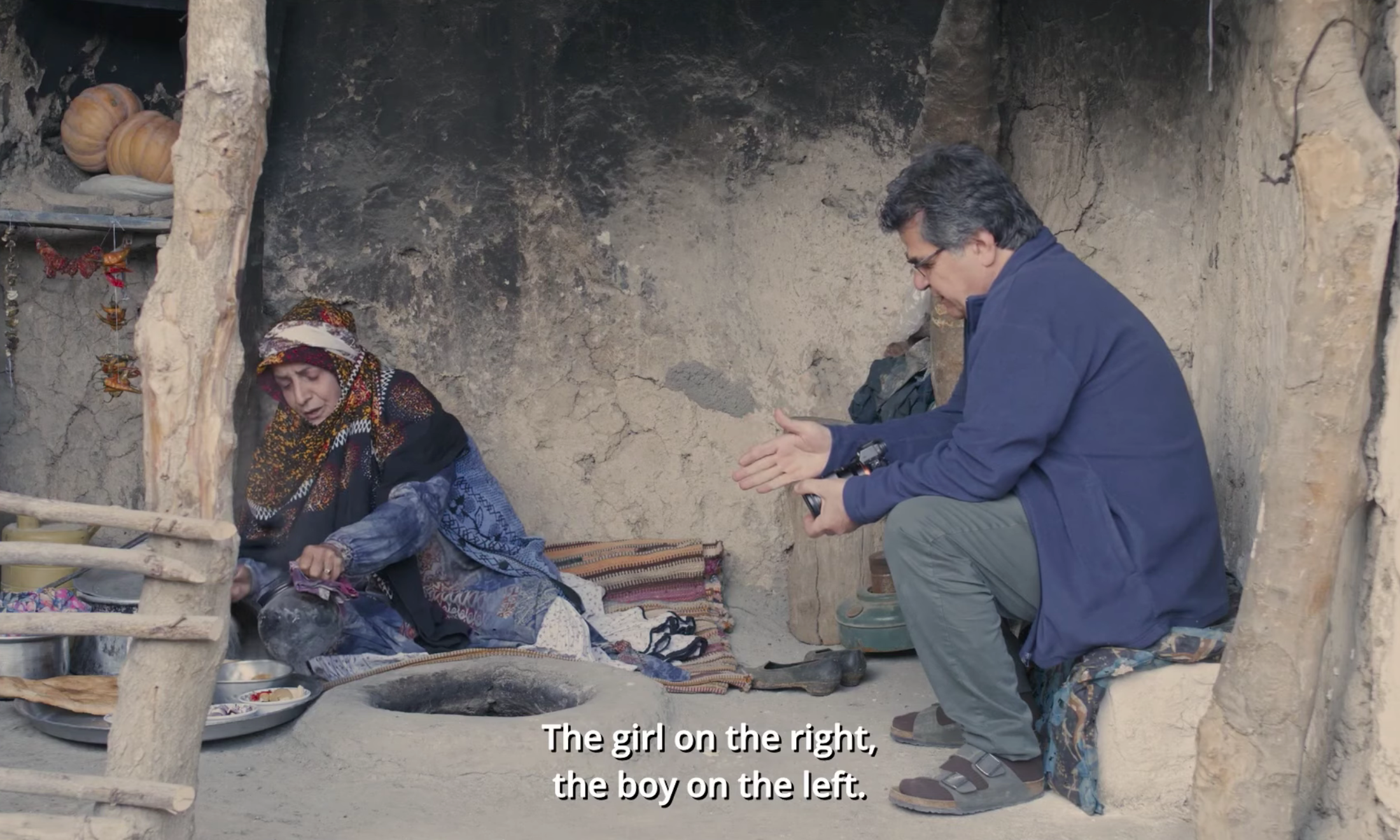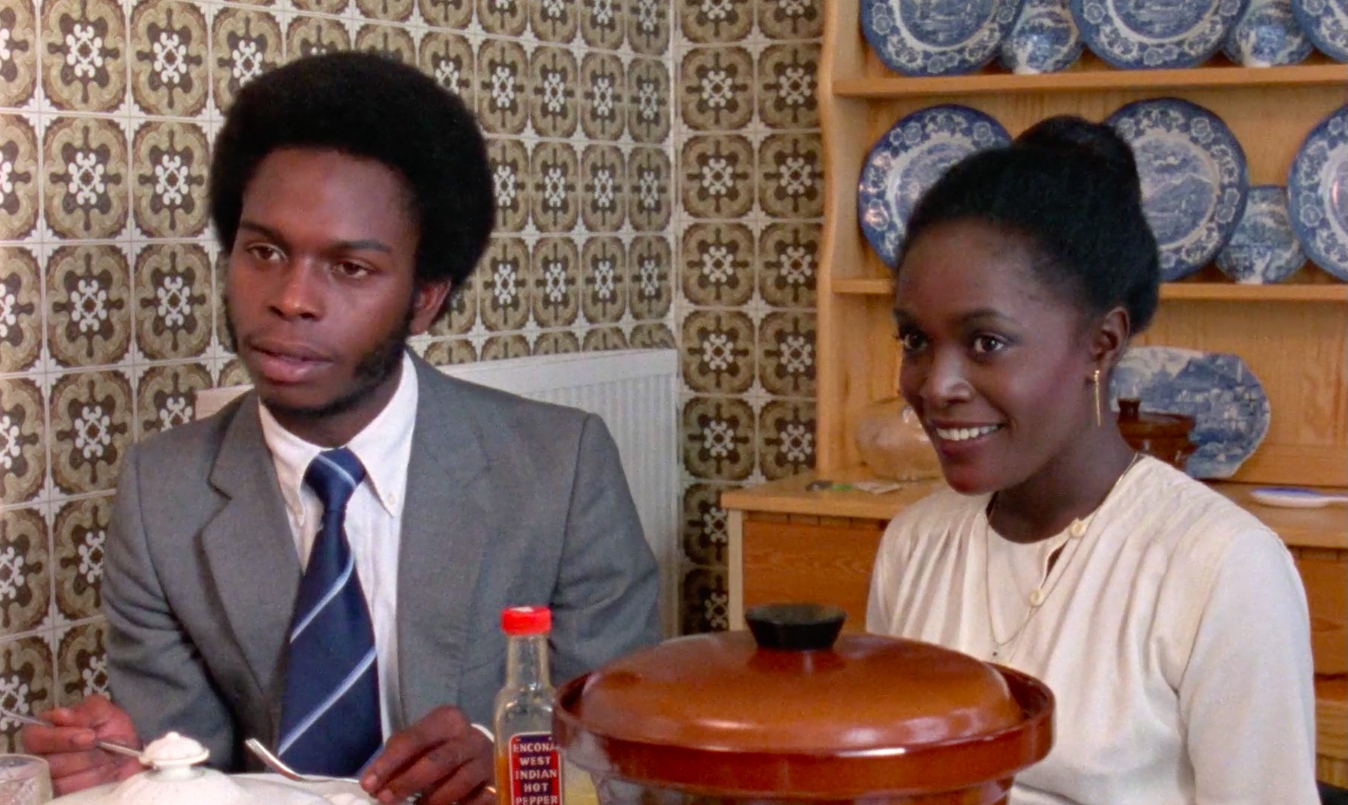Seven anti-capitalist films to watch after ‘Squid Game’
The South Korean television show has captivated audiences around the world. Here’s what to watch next.
Roisin Tapponi
22 Oct 2021

'Fish Tank, Kassander Film Company; 'Squid Game', Netflix; 'Below Dreams', Garrett Bradley; Michael Dziedzic
In the past month, polite conversation has shifted from avid questions about the weather to “have you seen Squid Game?” In the same way that Love Island hooked us in its earlier days, the South Korean TV show has created a collective cultural experience. It has captivated viewers across 90 countries, and surpassed Bridgerton as Netflix’s most-watched show.
The plot of Squid Game is fairly straightforward. Essentially, there are 456 players, who are all deep in debt. They play a series of children’s games for a prize of £28m. If they lose a game they die – and the prize pot increases. The popularity of the series adds to the rapidly-growing influence of South Korea in global pop culture, following the 2019 Oscar-winning film Parasite and the international dominance of K-pop boy band BTS. As a result, Netflix plans to spend £364m on developing South Korean films and shows this year alone, in order to meet increasing demand for South Korean content across the international market.
As a piece of entertainment producing enormous profit for a Silicon Valley corporation, Squid Game can hardly be called ‘anti-capitalist’ itself. But the content of the show is an anti-capitalist comment. In Squid Game, the only escape from the desperation of poverty is money; the bored rich play literal games with the lives of the poor and dignity does not exist, even in death, for those with no capital. The series itself was created by Hwang Dong-hyuk during the 2008 global financial crisis, a period of intense economic insecurity. The long-lasting impact of the crisis was exacerbated by politicians such as Donald Trump, who Dong-hyuk cites as the source of ‘inspiration’ for the VIP characters. Trump ran his country with the impetus of a reality TV show – in a ‘democratic’ society, we are led to believe that free will exists in a rigged game.
With its allegorical depictions of today’s neoliberal, capitalist society, it’s no surprise the series has resonated so deeply, across a global audience. And it’s not alone. As the divide between the have and the have-nots deepens, we are seeing more cultural work that examines the capitalist system that operates in much of the world with a critical eye (even if it can be argued this is merely to keep us feeling we’re doing anti-capitalist work without actually engaging in challenging the system). Squid Game exists in a network of allegorical films and TV shows that critically address a viciously capitalist system – as we live it. Here’s a few to check out next.
The Inheritance (2020) dir. Ephraim Asili
In this debut feature-length essay film, Ephraim Asili historicises his time spent with a Black Marxist collective in West Philadelphia, MOVE Organisation, and the Black Arts Movement. Weaving together oral histories and archival material, the film reconstructs a commune where a community of young, Black artists and activists form a radical cultural and political collective.
Sorry We Missed You (2019) dir. Ken Loach
It is impossible to talk about anti-capitalism and cinema without mentioning British independent filmmaker Ken Loach. His latest – and reportedly, last – film follows a family who have been battling debt since the 2008 financial crash in Newcastle upon Tyne. With a nuanced and didactic approach, Loach depicts the lives of a working-class family who struggle to wrestle back financial independence, only for their relationships to disintegrate under the extreme struggle and stress of living in increasing and unavoidable poverty.
Below Dreams (2014) dir. Garrett Bradley
In 2020, filmmaker Garrett Bradley gave us the powerful and tear-jerking documentary Time, which follows Fox Rich who spent two decades campaigning for the release of her husband from the corrupt US prison system. Since receiving high critical acclaim, Bradley has made a Netflix documentary about tennis star Naomi Osaka, alongside a resurgence of interest in her earlier films. One of these is Below Dreams, a feature-length drama in which three young people move to New Orleans and try to build a life in the city’s crumbling economic reality. Whether they succeed or not, is down to the morals and ethics of the viewer.
Aquarius (2016) dir. Kleber Mendonça Filho
A tour de force in storytelling, filmmaking auteur Kleber Mendonça Filho has long been concerned with socio-political realities in rural and impoverished urban areas of Brazil. In Aquarius, one of his lesser known dramas, we follow the life of Clara, a 65-year-old widow and retired music journalist, as she resists forced occupation from her home. Clara is the last resident of the Aquarius estate, and refuses to sell her apartment to a construction company that wants to kick her out, in order to turn the building into a redevelopment project. A critical look at gentrification in Brazil and released at the apex of the country’s political crisis, the film generated a lot of controversy and protests from its own cast and crew against Brazil’s coup upon its screening at Cannes Film Festival.
IWOW: I Walk on Water (2020) dir. Khalik Allah
From the director of Black Mother (2018), Allah takes us on a surreal trip through everyday life in East Harlem, an area in New York City housing a vast number of first, second and third generation immigrants. The film is mostly told through the eyes and words of Frenchie, a 60-something homeless Haitian man with whom Allah has a longtime friendship. In a series of dreamlike sequences, Allah takes us on a tour of 125th Street and Lexington Avenue, and the people who are largely invisible to the state but the heartbeat of a historic and culturally iconic neighbourhood.
Fish Tank (2009) dir. Andrea Arnold
Ahead of her new release Cow (2021), it is worth reflecting on the consistently powerful body of work made by British filmmaker Andrea Arnold. Fish Tank is certainly a highlight, and was hugely influential both in social realist cinema and for many young women who exist on the margins of society. Set in an East London council estate, the film is a humanising and frank depiction of a young woman, Mia, messed around by the false promises and bureaucratic nightmares of the welfare state. Mia dreams of becoming a hip-hop dancer, and struggles to fulfil her dreams amidst a never-ending series of daily obstacles that come her way as a young woman trapped by the system.
Antz (1998) dir. Eric Darnell
An unlikely inclusion, unless you have seen the Marxist commentaries comparing Antz to a Communist utopia. The film opens with Z, who condemns his fellow ants for their compliance in maintaining the colony structure. This is not an ‘over-intellectualising’ reading of the children’s animated film – literally, Z calls his comrades “mindless zombies capitulating to an oppressive system.” Full-blown war soon occurs, as the ants rebel against their highly militaristic, authoritarian society. Z convinces another militant ant to “influence the termite’s political processes through campaign contributions.” Yes, this is the same ant movie you innocently watched as a child in an Odeon cinema all those years ago.








